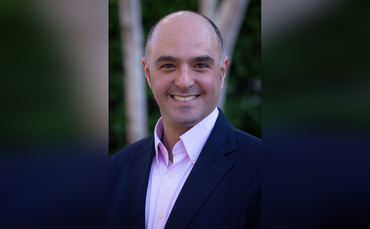Sharia-compliant investment strategies are now easy to access with several launched by industry mainstays since 2021 and others due to launch this year.
From bulge-bracket investment banks to providers within the pensions industry and even among some financial advisory outfits, the industry is listening up and knuckling down to target an increasingly engaged Islamic market.
The market is ready
If you are considering investing in a sharia-compliant fund, you are part of a growing number of investors who are now demanding more options to invest without compromising their ethical values.
FCA scolds 'poor' ESG benchmark providers for risking 'widespread failings'
Anecdotally, we are hearing from wealth managers and other institutions that the demand is driven by the next generation of investors as a result of increasing financial awareness and knowledge.
This is increasingly true for women, who, according to research by YouGov and Standard Life, are more likely to invest ethically.
The great cover-up?
However, when it comes to product choice for sharia-compliant strategies, there is much work yet to be done.
At first glance, sharia-compliant investors have the same two options as the rest of the market; active or passive. While this is not the place to re-hash the relative merits of either approach but for sharia investors, we believe there is a flaw at the heart of both approaches.
Few people realise that the majority of these products are masquerading as a uniquely constructed set of holdings, specific to the needs of Muslim investors.
ESG investing in emerging markets faces major hurdles despite vital importance
The truth is they frequently use the mainstream strategy as a base, and then remove individual names which, for example, do not meet the restrictions for haram sources of revenue or have very high debt levels.
You might wonder: what the problem is if the resulting strategy is compliant? However, by settling for a subset of an existing portfolio, investors may also end up with a subset of the performance.
What investors should be looking for is a portfolio constructed from the bottom-up with sharia principles in mind.
What is the opportunity?
The good news is that the opportunity set is very much still available for investors. We believe that constructing sharia-compliant portfolios from the bottom-up, using the best ideas from the available universe, is a more effective way of delivering for clients.
Tips for investors
In addition to a standard due diligence process, before investing in a sharia-compliant fund, I believe that investors and their advisers should also keep the following points in mind when considering their options:
- Compare the strategy's top ten holdings to the holdings of its flagship fund. If both holdings are identical or broadly similar this could be an indication that the strategy is simply a segment of the core strategy.
- Furthermore, check if both strategies have the same fund manager. If so, it is unlikely that the fund manager has built the sharia-complaint one from scratch.
- Compare the size of the sharia-compliant fund to the conventional one. If the latter is considerably larger, then it may be the case that the fund manager is not giving enough attention to the sharia-compliant strategy, another sign that it was not truly build from the ground up.
- Consider long-term performance. Check fund factsheets: if the strategy has underperformed for ten years or more through various market cycles, investors should begin asking questions and exploring other options.
Abdulaziz Alnaim, portfolio manager and managing director, Mayar Capital


